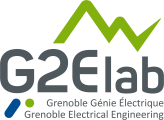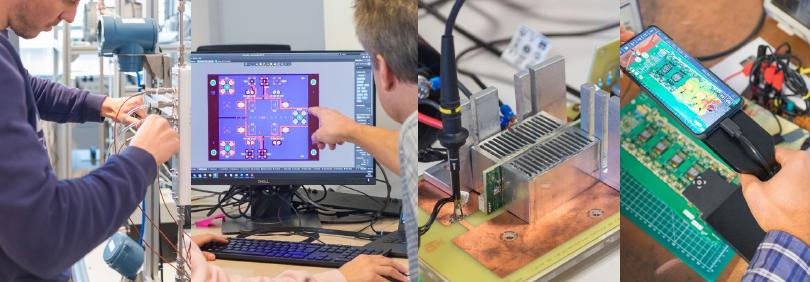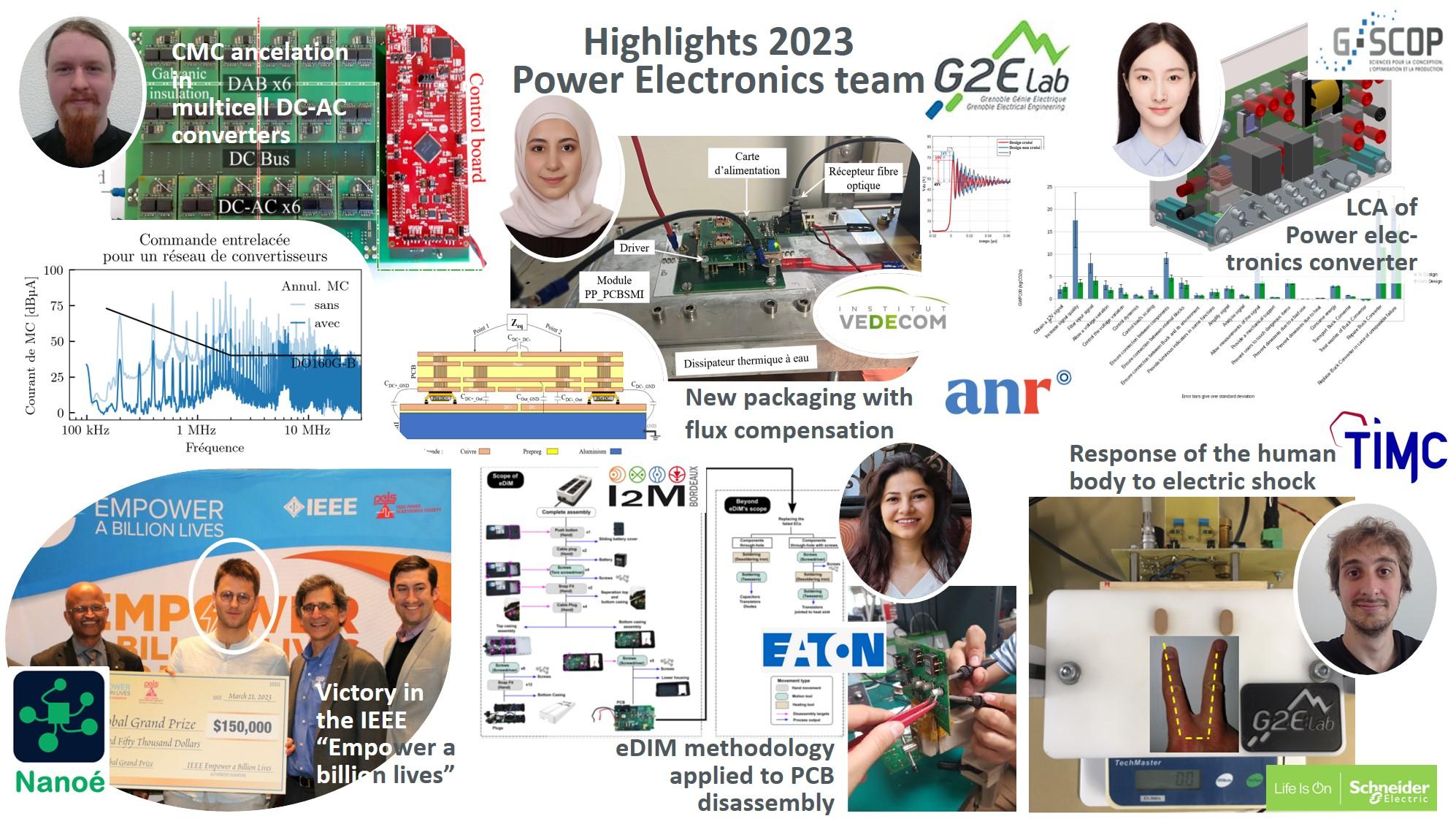Symmetrical control strategy at DC-AC multicell converter level for common mode current cancelation
Multi-cell DC/AC converters offer significant reduction in differential mode currents via interleaving. On the other hand, this introduces new propagation paths which strongly amplify the common mode currents. An original symmetrical control strategy, at multicell converter scale, allows all common mode currents to be recycled internally to reduce filtering requirements.
Involved persons: Involved persons in this research activity are Hugo Pichon (PhD candidate), Florentin Salomez (Post-doc student), Yves Lembeye (PR UGA), Jean-Christophe Crébier (DR CNRS
Flux compensation concept: application to power modules, inductive and capacitive caracterizations
A new power module is proposed: it is based on the flux compensation concept. Thanks to a 3D integration, the stray inductance of the switching cell is reduced compared to classical 2D packages.
Involved persons: Fatme ABED-ALI (PhD candidate), Pierre LEFRANC (Associate Prof. G-INP), Pierre-Olivier JEANNIN (Associate Prof. UGA), Yvan AVENAS (Associate Prof. G-INP), Toni YOUSSEF (Engineer VEDECOM), Hadi ALAWIEH (Engineer VEDECOM).
Life cycle assessment method for power electronics : application to a buck converter
An eco-design method is proposed so as to help power electronics designers to take into account global environmental impacts during the pre-design step. It is based on a FAST (Function Analysis System Technic) approach. This method is illustrated on a buck converter: MOSFET-Si technology is compared to HEMT-GaN.
Involved persons: Li FANG (PhD candidate), Pierre LEFRANC (Associate Prof. G-INP), Maud RIO (Associate Prof. UGA), Benoît SARRAZIN (IR G-INP), Yannis ROSSET (Engineer G-INP)
Nanoé and G2Elab win the IEEE “Empower a billion lives” competition
The Nanoé company and G2Elab won the Grand Prize in the “Empower a billion lives” competition organized by IEEE-PELS. The objective of this competition, which brought together nearly 200 participating teams, is to present solutions to ensure the electrification of nearly 1 billion people who do not have access to electricity. The team was awarded both for its technical innovations linked to Lucas Richard's thesis and for the associated societal aspects.
Involved persons: This work, realized in collaboration between Nanoé and G2Elab involved Lucas RICHARD (PhD candidate), Marie-Cécile ALVAREZ (MCF-GINP), David FREY (MCF-UGA) and Bertrand RAISON (PU UGA)
Implementation of the eDIM methodology to estimate the time required to disassemble and repair a PCB
Power electronic converters are used in many modern electrical appliances and systems. Despite their widespread use, there is no efficient and cost-effective disassembly process for these devices. This work proposes to adapt the eDIM method (EN45554) to identify the hard points limiting the disassembly of converters on PCBs, in order to act on their design and facilitate their repair, reuse or recycling at end-of-life.
Involved persons: This work was conducted as part of the ANR-funded VIVAE project. It involved Tugce TURKBAY (PhD candidate), Thècle ALIX (MCF Arts et Métiers Bordeaux), Jean-Christophe Christophe CREBIER (DR CNRS) Yves LEMBEYE (PR UGA), Nicolas PERRY (PR Arts et Métiers Bordeaux)
Modeling the human body to assess electrical risk in new applications
The growing electrification due to the energy transition implies on the one hand the rise in voltage of applications (continuous) but also the appearance of signals from power electronics such as the Energy Transfer Package. As much as the safety of people in the field of alternative is well mastered as much for these recent signals, it is necessary to understand the response of the human body to these new electric shocks by developing more relevant models.
Involved persons: This work is carried out between TiMC, G2Elab and Schneider Electric involving: J. Stepanek, P. Cinquin, F. Boucher, S. Tanguy, J.P. Alcaraz, E. Roche, A. Derbey, A.B oujon, E. Clavel, J. Roudet



